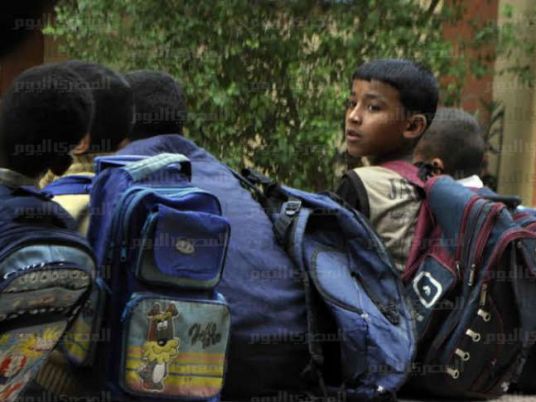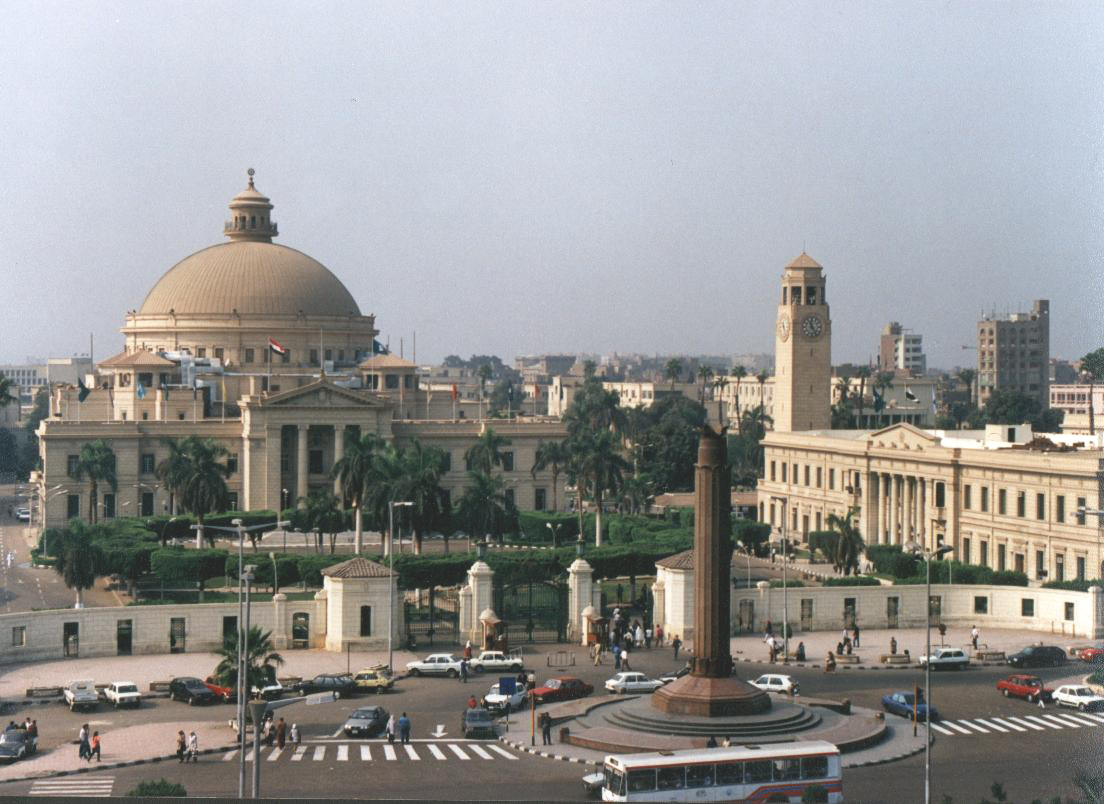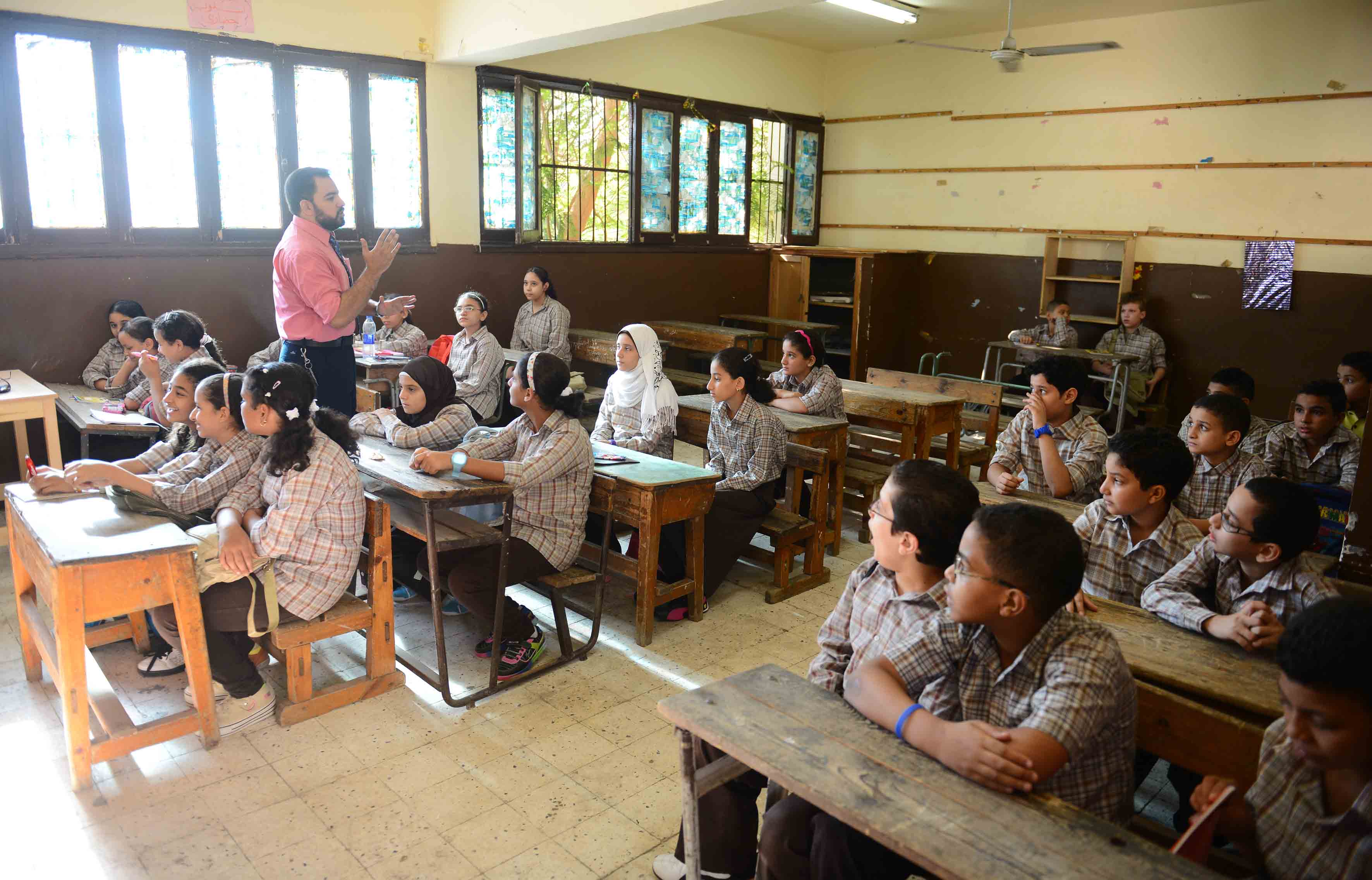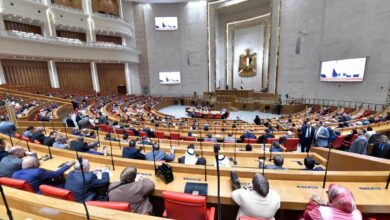
Carrying a bag full of books, Mahmoud Abdel-Aty goes to school to join his eighth grade colleagues in the morning assembly, sing the national anthem and salute the flag, a ritual that has been repeated everyday for the past eight years.
Mahmoud never flunked before. Still, he cannot read or write although he is approaching high school level. He is no different than thousands of other pupils in Fayoum.
Al-Masry Al-Youm has conducted a survey for six months on a sample of pupils. The results show that one out of every six pupils of preparatory school level do not know how to read and write. This applied to elementary school pupils as well and tallied with the Global Competitiveness Report of September 2013 in which Egypt ranked no. 148.
The survey also showed that the Ministry of Education passes students automatically, regardless of their exam results.
The ministry spends its small budget on pensions for teachers, who are unqualified and live below the poverty line. Classrooms are overcrowded and curricula are poor. The result is illiterate students graduating from schools.
Abdel Moaty sits on a bench in a classroom with 50 others. His Arabic teacher, Abdel Aziz Ibrahim, asks him to write “Long live the Arab Republic of Egypt” on the blackboard but he still does not know how, though he has been singing it in the national anthem everyday for eight years.
Another nine pupils could not copy the phrase from paper.
Back to Mahmoud, he comes from a family of eight members whose breadwinner earns LE1,400 per month as a government employee. The father believes Mahmoud should find a job instead of going to school, contending that his other son even has a Bachelor of Arts and has still been staying home since 2011 because he cannot find work.
Adel Ramadan Abdel Hamid, chairman of the Board of Trustees of the Farqas Basic Education School, agrees that children should work to help their parents instead of going to school.
The survey, which was conducted on nine primary and eight preparatory schools in Fayoum, showed that 19 percent of primary school students are illiterate and 12 percent can barely read and write, while 17 percent of preparatory school students are illiterate and 9 percent can barely read and write.
Despite documented evidence with both sound and images, Education Ministry Undersecretary in Fayoum Mahmoud Aboul Gheit says there are no illiterate pupils. “I dare you [to find some]. I have inspected many schools myself and tested pupils of even the first grade,” he said.
Education Minister Mahmoud Aboul Nasr said the ministry introduced three years ago a program to improve reading and writing skills for students in the early grades. “It was successful with 4.2 million pupils nationwide,” he said.
But when he was faced with the results of the survey, the minister became angry and ended the conversation.
Former Education Minister Ahmed Gamal Eddin said spending on education is very low. “We do not build enough schools. And classrooms are congested with 50 to 70 students, sometimes 140 students in the provinces,” he said. “How would they understand what the teachers say?”
An Arabic language teacher for the sixth grade says if each student had just one question, the 45 minutes of the class would not be enough to answer it.
Aboul Gheit said the education budget in the new constitution was raised to 4 percent of GDP or LE62.7 billion (US$9 billion) for 2013-2014. “This will help,” he said.
But Kamal Mogheith, a researcher at the National Center for Educational Research, says this is not enough to built new schools to accommodate the annual population increase. “For that, we need to build 1,000 schools every year at a cost of LE5.5 billion for ten years,” he said. “Also, the LE10 million allocated every year for training teachers are not enough.”
A source at the Ministry of Education said salaries of teachers will devour the increase in the budget of the school year 2014-2015, as they rise by 10 percent annually and account for 85 percent of the budget. This means the total education budget of this year has not really increased much, as it stands at LE13 billion ($1.86 billion) compared to LE12.6 billion the year before.
There are 18,215 teachers in Fayoum, including 11,739 for 542 primary schools with 7,740 classrooms for 338,071 pupils and 6,476 teachers for 286 preparatory schools with 3,336 classrooms for 144,918 pupils.
Their salaries range between LE650 and LE3,400, which forces them to take up other part-time jobs on the side.
Islam Abdel Gabbar, a mathematics teacher, works as a taxi driver in the evening. “It affects my performance in class,” he said.
Abdel Gabbar’s salary is LE1890, which is LE414 under the poverty line according to the Central Agency for Public Mobilization and Statistics.
Mahrous Hussein, another teacher, works until midnight as a butler. His salary is LE1,620.
Gomaa Ramadan is forced to work overtime, carrying concrete in building sites, as his meager salary is LE1,400, which isn't enough to provide for the needs of his family.
Other teachers work in brokerage, livestock and land and real estate, or drive taxis or tuk-tuks, just to name a few.
According to Dr. Mohammed Sakran, professor of Pedagogy at Fayoum University, teachers who must take up additional work to support their extremely low salaries become torn between two worlds: trying to maintain the prestige of being a teacher and dealing with the humiliation of having to work a second job outside the classroom just to make ends meet.
The full investigation by Al-Masry Al-Youm, including findings on teacher training, can be found in Arabic here.
Edited translation from Al-Masry Al-Youm




